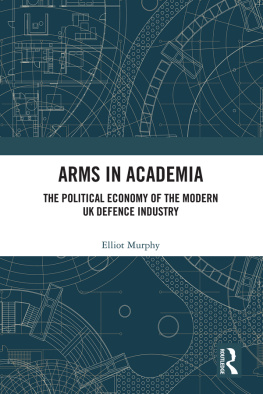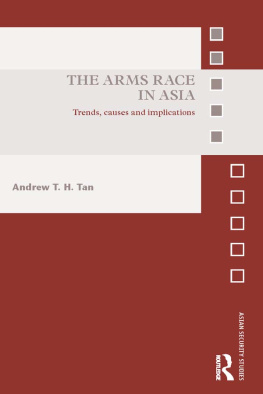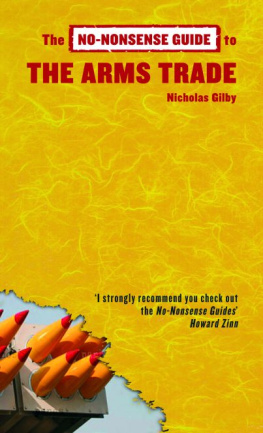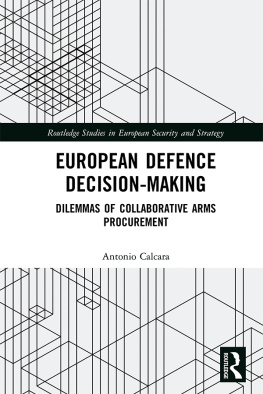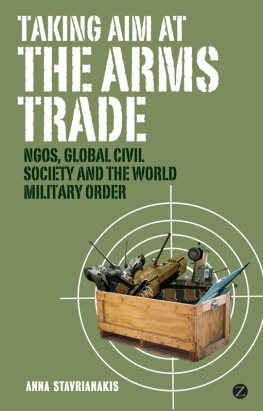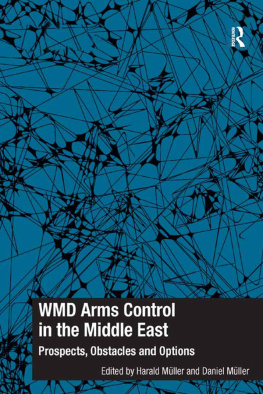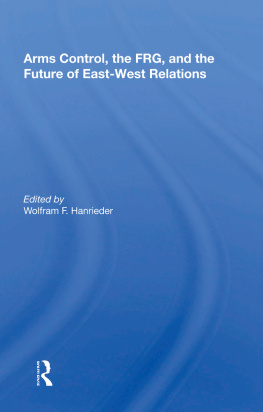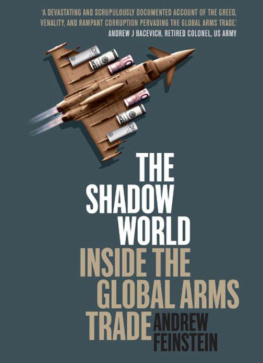Arms in Academia
This book studies how the arms trade has continued to receive generous state subsidies, along with less direct forms of financial and intellectual support from academia in the UK. It examines the ways in which arms dealing has contributed to the violation of human rights in the Middle East, North Africa, South America, Indochina and other regions of intense conflict, and in doing so, reveals how the industry sells a particular image of itself to the public.
The volume:
- Extensively covers the arms trade and its impact across the world.
- Shows how the UK arms trade has developed research, investment and consultancy links with universities, museums and other public institutions.
- Discusses the future of the arms trade and explores alternatives in terms of job opportunities, economic growth and academic research criteria.
A major intervention in international politics, this volume will be of great interest to scholars and researchers of military and strategic studies, international relations, human rights and the social sciences in general. It will also be of interest to policy analysts and defence professionals.
Elliot Murphy is a neuroscientist, linguist and author, currently working as a researcher at the Vivian L. Smith Department of Neurosurgery, McGovern Medical School, University of Texas Health Science Center, at the Texas Institute for Restorative Neurotechnologies (TIRN), USA. His recent publications include Unmaking Merlin: Anarchist Tendencies in English Literature (2014). As an activist and literary critic, his works have appeared in the Los Angeles Review of Books, the London Review of Books and openDemocracy.
First published 2021
by Routledge
2 Park Square, Milton Park, Abingdon, Oxon OX14 4RN
and by Routledge
52 Vanderbilt Avenue, New York, NY 10017
Routledge is an imprint of the Taylor & Francis Group, an informa business
2021 Elliot Murphy
The right of Elliot Murphy to be identified as author of this work has been asserted by him in accordance with sections 77 and 78 of the Copyright, Designs and Patents Act 1988.
All rights reserved. No part of this book may be reprinted or reproduced or utilised in any form or by any electronic, mechanical, or other means, now known or hereafter invented, including photocopying and recording, or in any information storage or retrieval system, without permission in writing from the publishers.
Trademark notice: Product or corporate names may be trademarks or registered trademarks, and are used only for identification and explanation without intent to infringe.
British Library Cataloguing-in-Publication Data
A catalogue record for this book is available from the British Library
Library of Congress Cataloging-in-Publication Data
Names: Murphy, Elliot, 1991 author.
Title: Arms in academia : the political economy of the modern UK
defence industry / Elliot Murphy.
Description: Abingdon, Oxon ; New York, NY : Routledge, 2021. |
Includes bibliographical references and index.
Identifiers: LCCN 2020013801 (print) | LCCN 2020013802 (ebook) |
ISBN 9780367509439 (hardback) | ISBN 9781003083962 (ebook)
Subjects: LCSH: Defense industriesGreat Britain. | Academic
industrial collaborationGreat Britain. | Research, Industrial
Great Britain. | Militaryindustrial complexGreat Britain.
Classification: LCC HD9743.G72 M87 2021 (print) | LCC HD9743.
G72 (ebook) | DDC 338.4/735500941dc23
LC record available at https://lccn.loc.gov/2020013801
LC ebook record available at https://lccn.loc.gov/2020013802
ISBN: 978-0-367-50943-9 (hbk)
ISBN: 978-1-003-08396-2 (ebk)
Typeset in Sabon
by Apex CoVantage, LLC
1
Introduction
The Chinese do not adopt either our theoretical or our practical ethic. They admit in theory that there are occasions when it is proper to fight, and in practice that these occasions are rare; whereas we hold in theory that there are no occasions when it is proper to fight and in practice that such occasions are very frequent.
Bertrand Russell (1999: 538)
In an age of Brexit and perennial Conservative dominance of the UK state, the British defence industry has typically managed to fly under the radar and remain clear of the headlines through lending itself an air of ethical credibility. This remarkable feat has been achieved through a careful integration into public institutions such as universities and museums via sponsorships, research programmes and graduate schemes often with the taxpayers assistance. This book explores how the arms trade has continued to receive generous state subsidies, along with less direct forms of financial, labour and intellectual support from academia and other little-known sources. Together with briefly surveying the economic and political dynamics of how the industry sells a particular image of itself to the public, I will discuss a number of recent case studies in which the arms trade has contributed to the violation of human rights across the globe.
As Sam Walton from Campaign Against Arms Trade (CAAT) has told me: If you look at everything Oxfam do, the arms trade fuels the need for them to do it. It will be argued here that the close relationship between ministers and the bosses of the arms trade also compromises the governments ability to properly enforce its own export licensing laws something which has directly contributed to escalating violence in the Middle East, North Africa, South America, Indochina and other regions of intense conflict. Through exploring these issues, one particular question will recur: How can Britain claim to be a promotor of human rights when its defence industry is deeply beholden to the needs of repressive states? Addressing closely related issues, Sir Simon McDonald, Permanent Secretary at the Foreign Office, said in 2015 that human rights did not maintain the profile the Foreign Office that they had in the past. Instead, the Conservatives prosperity agenda was the priority (Wright 2015).
Discussing these topics requires a certain amount of context. For instance, after the 2016 Brexit vote, senior ministers at once announced their intentions to increase the value of arms and defence equipment in attempts to remain competitive. Naturally, Britain now aims to cement new relationships with non-European Union states. The difficulties arise over which states, and since the Brexit vote, many authoritarian and often dictatorial regimes have been in the governments sights. The Conservative government cleared export licenses worth 2.9 billion in the 12 months after June 2016 to 35 countries rated not free by the think-tank Freedom House; a 28% increase on the previous 12 months (Milmo 2018). Among these states are Equatorial Guinea, widely considered deeply corrupt and repressive, and Azerbaijan, accused by a number of human rights groups of conducting a campaign against freedom of speech and for which 1 million in arms licenses were granted. This is part of a more general push made explicit by the government to prioritise arms sales in Britains post-Brexit future, with former Defence Secretary Michael Fallon vowing that Britain would spread its wings across the world at DSEI, a major arms fair in September 2017 (Dearden 2017). Liam Fox made visits to the United Arab Emirates (UAE), Bahrain, Oman and Kuwait within the first few months into his appointment as International Trade Secretary in 2016; arms were very likely on the agenda. A year later, Fox announced that the UK and the Philippines far-right President Rodrigo Duterte had shared values at the same time that human rights groups were condemning Dutertes sanctioning of extra-judicial killings (Osborne 2017). Duterte has personally threatened to bomb schools preaching communism and regularly supports extra-judicial killings, making the shared values comment somewhat understandable, given the UKs recent history of Middle East and African interventions.

